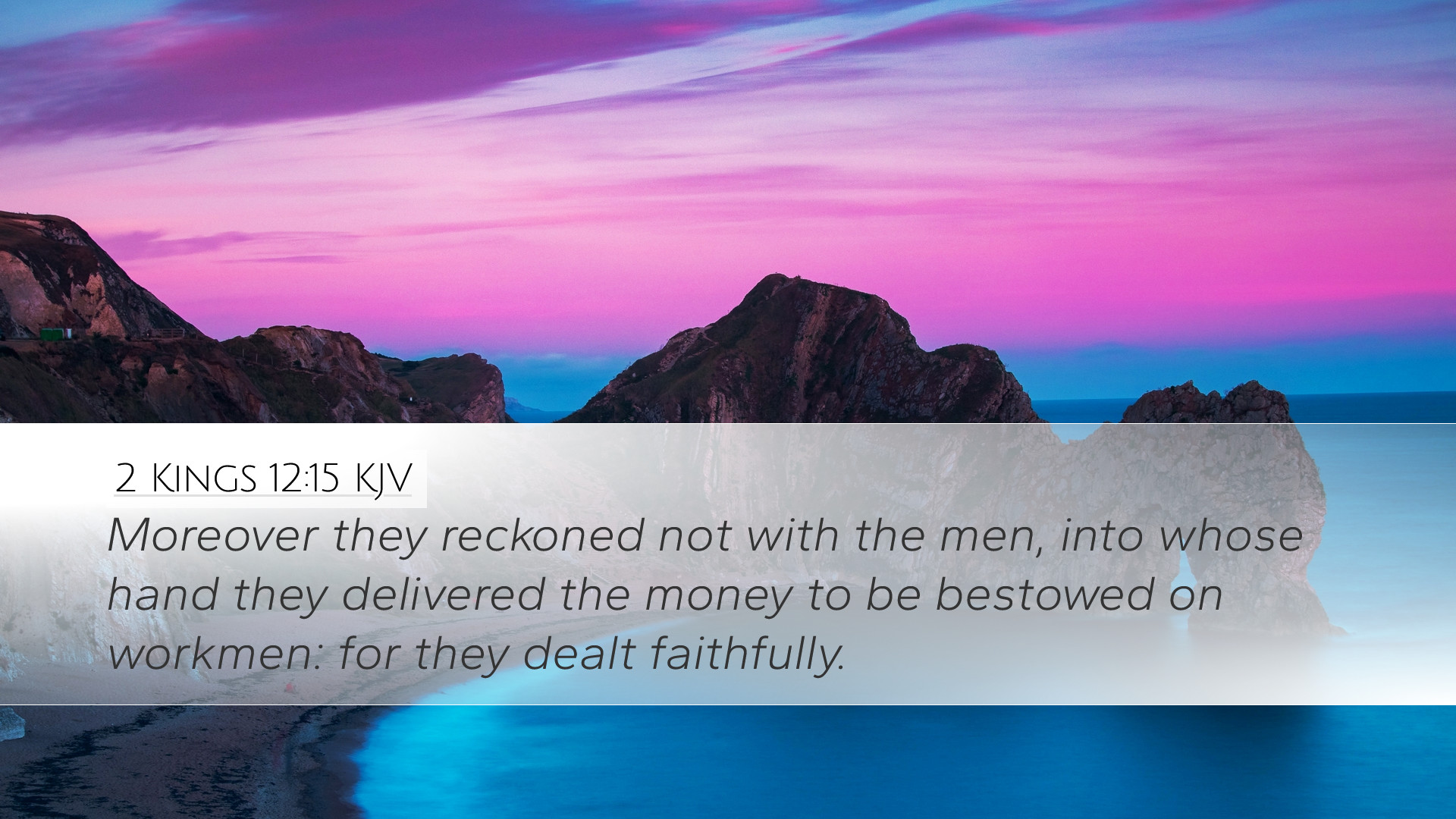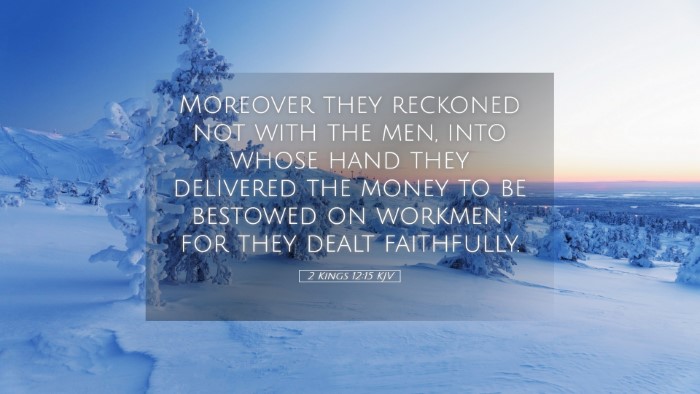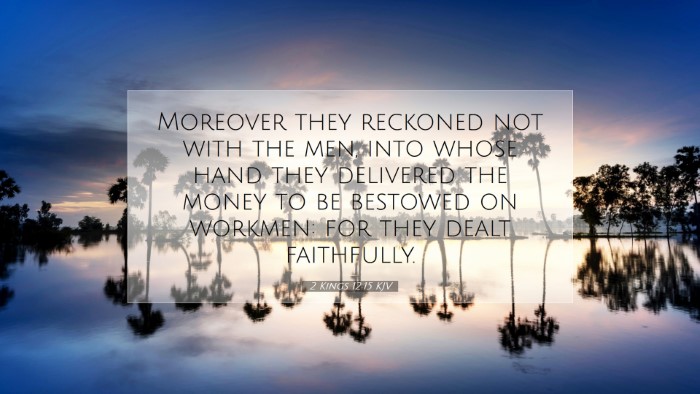Old Testament
Genesis Exodus Leviticus Numbers Deuteronomy Joshua Judges Ruth 1 Samuel 2 Samuel 1 Kings 2 Kings 1 Chronicles 2 Chronicles Ezra Nehemiah Esther Job Psalms Proverbs Ecclesiastes Song of Solomon Isaiah Jeremiah Lamentations Ezekiel Daniel Hosea Joel Amos Obadiah Jonah Micah Nahum Habakkuk Zephaniah Haggai Zechariah Malachi2 Kings 12:15
2 Kings 12:15 KJV
Moreover they reckoned not with the men, into whose hand they delivered the money to be bestowed on workmen: for they dealt faithfully.
2 Kings 12:15 Bible Commentary
Commentary on 2 Kings 12:15
2 Kings 12:15 states: "And Jehoiada took all the captains of hundreds, and the guards, and the doorkeepers, and all the people of the land; and they brought the king down from the house of the Lord, and they came through the upper gate to the king's house, and set the king upon the throne of the kingdom."
Context and Overview
This verse is situated within the narrative surrounding the reign of Joash (or Jehoash) following the death of Athaliah, the usurper queen. Under the guidance of the high priest Jehoiada, Joash is crowned king, which is a significant act signifying the restoration of rightful leadership in Judah. It serves as a critical moment not just for Joash but for the entire nation that had endured the idolatry cultivated by Athaliah.
The Role of Jehoiada
Jehoiada's leadership is pivotal in this passage. According to Matthew Henry, Jehoiada's actions reflect a strategic and faithful approach in restoring the worship of Yahweh.
- Spiritual Leadership: Jehoiada's dedication to the Lord is evident. He had safeguarded Joash, ensuring the rightful heir was not lost amidst the royal family's treason.
- Political Acumen: By rallying the captains and the people, Jehoiada not only emphasizes the importance of spiritual governance but also unites military and civilian power for the divine mandate of kingship.
The Coronation of Joash
The act of bringing Joash down from the temple signals the transition from a time of hidden leadership to that of openly ruled kingship. Albert Barnes notes this physical relocation from the temple, a place representing holy authority, to the royal palace symbolizes the integration of spiritual and secular governance.
- Symbolism of the Temple: The temple is not only the focus of Jehovah’s presence but also is the rightful place from which a king should operate, indicative of the belief that true kingship should reside in the framework of divine oversight.
- Celebration of Leadership: Setting Joash upon the throne encapsulates both a physical and spiritual celebration. It marks the end of Athaliah's tyrannical rule and reaffirms Yahweh’s anointed leadership.
Significance for Pastors and Theologians
This verse holds profound implications for modern leaders within the church and community. Adam Clarke suggests the need for careful governance where spiritual and political duties intersect. Pastors can draw from Jehoiada's example of vigilance and strategic action when leading congregations through challenges.
- Leadership Integrity: Leaders must be vigilant in protecting what is sacred within their communities, ensuring that the truths of Scripture guide their decisions.
- Community Involvement: The collaboration of various leaders signifies the essential nature of communal participation in governance and spiritual matters.
Theological Insights
From a theological standpoint, this passage underlines the faithfulness of God in preserving His covenant throughout Israel's tumultuous history. The restoration of Joash represents more than a political renewal; it embodies divine redemption and faithfulness.
- God's Sovereignty: Despite the chaos caused by human actions, God still orchestrates the events leading to the restoration of His people. This presents an encouraging theological framework for understanding God's active role in history.
- Typology of Christ: Joash's ascension to the throne can also be viewed typologically in relation to Christ. Just as Joash was anointed to restore the kingship and worship of Yahweh, Jesus fulfills the ultimate anointed role in restoring and redeeming humanity.
Conclusion
In summary, 2 Kings 12:15 provides a rich tapestry of historical, political, and spiritual insights. It emphasizes the importance of faithful leadership in the service of God’s people, the significance of community in governance, and the continual faithful character of God in ensuring His promises prevail. For present-day believers, especially pastors, scholars, and students of the Word, it is a call to reflect on the nature of godly leadership and the importance of spiritual integrity in both personal and communal spheres.


